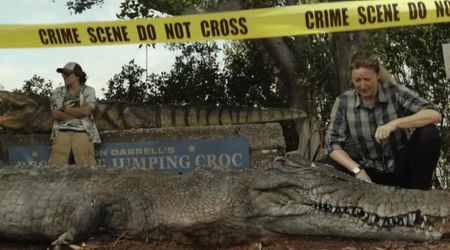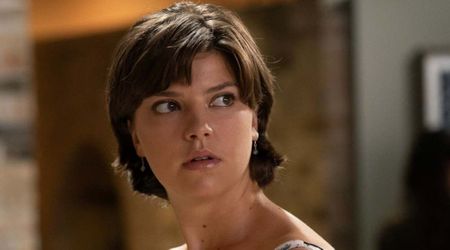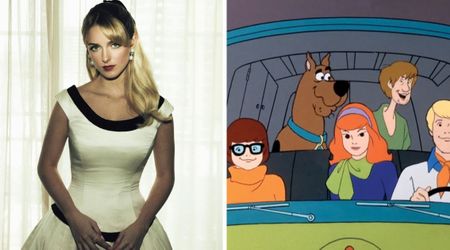The philosophy of Rick and Morty: What is it that makes the show tick?

What exactly is tribalism? In simple terms, it's a way of being organized in or an advocate for tribes, which in popular culture has come to define a way of thinking or behaving in which people are fiercely loyal to a particular group. It's something that has come to be associated with sports fans in general and a sense of siege mentality that they manage to drum up against those that support rival teams; violence, hooliganism, mob mentality are just a few of the things that commonly accompany tribalism.
But over the past few years, tribalism has also come to represent fans of TV shows as they band together in discussion forums and threads to pick apart every single element, stripping it bare. While this has sprouted constructive criticism and well-thought-out reviews, a side effect has been that there has been increasingly toxic behavior from sanctimonious fans who view the word of the show as gospel. And no show has had a more tribalistic group of fans than Adult Swim's adventure/science fiction/comedy animated series: Rick and Morty.
Fans were left waiting in eager anticipation for the show's third season earlier last year, with the first episode releasing on April 1, 2017, 1.5 years after the conclusion of the previous one. While fans were initially skeptical that it was an April Fools' prank, they soon realized that it was the real deal, consuming it ravenously and then brainstorming fan theories on how it added up to the story, trying to predict what direction Rick and Morty were heading.
But it would be close to another four months before the season released in its entirety, and as usual, fans devoured it in double quick time and were soon desperately left wanting more; however long it may have taken. And while that confirmation for the next season often arrives pretty quickly, especially considering how successful the show is, this time, Adult Swim dragged its feet. And now, well over 4 months since the last episode aired, there is concern that it is not returning to the small screens. That it will leave everyone hanging with multiple loose ends still left to be sorted out.
Why the sudden lethargy? Why is the show's creator, Dan Harmon, not willing to renew what is undoubtedly the network's biggest cash cow? The answer would arguably lie in what kind of a person Harmon is. Fans of the American will know him from shows such as Community and HarmonQuest and know that the man, while no doubt one of the brilliant creative minds in the country, is a temperamental maniac who has had problems with alcohol abuse in the past and takes decisions on a whim.
It was practically an open secret that he was more than annoyed at the tribalistic fans who had made it a point on more than one occasion given the show a bad name in the media. That frustration and annoyance arguably reached a tipping point following the release on season 3's first episode, 'The Rickshank Redemption.' In the episode, the protagonist Rick mentions a McDonald's Szechuan sauce that he's dying for, prompting the retail food chain to release a few limited edition packets of the condiment in select stores in the U.S.
Cue the mass frenzy by thousands of Rick and Morty fans who queued at McDonald's outlets on D-Day and threw a riot when the sauce inevitably ran out. While the chain did announce it would release more packets at a later date and calmed the frenzy down to an extent, the damage had been done. Harmon had probably made his mind about the show already.
And if you're still not convinced about how self-righteous some of the show's fans are, here's an unironically written snippet by one which sums up a small, but nonetheless significant portion of the fanbase:
"To be fair, you have to have a very high IQ to understand Rick and Morty. The humor is extremely subtle, and without a solid grasp of theoretical physics, most of the jokes will go over a typical viewer’s head. There’s also Rick’s nihilistic outlook, which is deftly woven into his characterization - his personal philosophy draws heavily from Narodnaya Volya literature, for instance. The fans understand this stuff; they have the intellectual capacity to truly appreciate the depths of these jokes, to realize that they’re not just funny - they say something deep about LIFE.
"As a consequence people who dislike Rick & Morty truly ARE idiots- of course, they wouldn’t appreciate, for instance, the humor in Rick’s existential catchphrase "Wubba Lubba Dub Dub," which itself is a cryptic reference to Turgenev’s Russian epic Fathers and Sons. I’m smirking right now just imagining one of those addlepated simpletons scratching their heads in confusion as Dan Harmon’s genius wit unfolds itself on their television screens. What fools.. how I pity them."
"And yes, by the way, I DO have a Rick & Morty tattoo. And no, you cannot see it. It’s for the ladies’ eyes only- and even then they have to demonstrate that they’re within 5 IQ points of my own (preferably lower) beforehand. Nothin personnel kid."
Enough giving the fans a bad name. Unfortunately, every show has these kinds of Neanderthals. Let's talk about why the show has become the barnstormer it is. Let's delve into the depths of what makes Rick and Morty, Rick and Morty.
The show revolves around Rick Sanchez, a genius, sociopathic, alcoholic scientist - who is probably modeled up to some extent on Harmon himself - and his naive grandson, Morty. The significant side characters are Morty's sister, Summer; his father, Jerry, and mom, Beth - who is Rick's daughter. Each episode involves Rick going on spectacular, death-defying space adventures with his grandkids, all the while delivering to the audience a message about the inherent pointlessness of life.
And therein lies what Rick and Morty is all about. Combining tropes from popular fiction - be it HP Lovecraft's Cthulhu in the intro, Ghostbusters, David Cronenberg, Nosferatu, Freddy Kreuger, or even the fact that two main protagonists are caricatures of Doc Brown and Marty McFly from Back to the Future - and the concepts of absurdism, existentialism, and nihilism, it tells the audience right from episode one that the universe is dictated by randomness and that what humans do has little effect the grand scheme of things, so why not have a little bit of fun?
Numerous bits pay homage to Lovecraftian horror, a genre that was honed, perfected, and named after H.P Lovecraft. It emphasizes the horror of the unknown and is accompanied by anti-anthropocentrism - the fact that humans are not the center of the universe - misanthropy, detachment, helplessness and hopelessness, and unanswered questions, all of which can be seen in facets of Rick's character.
Harmon primarily uses Rick's trusty portal gun to incorporate Lovecraft, depicting hundreds of impossible, absurd and fantastical scenarios and realities as Rick and Morty go on their space adventures. Be it the man who has ants for eyes, the reality where the chairs sitting on humans use pizzas to order delicacies made from telephones or the world where butts are trees, the show constantly confronts the viewer with the vast unknown and unimaginable and begs the question 'Are we significant?'
Contemporary American philosopher Eugene Thacker describes this concept that humans are not important as 'cosmic pessimism,' writing in his book that the universe 'is absolutely inhuman and indifferent to the hopes, desires, and struggles of human individuals and groups,' and Rick and Morty both perfectly embody the philosophy.
The Rick we see is also Rick C137, one Rick in a universe of infinite Ricks that just happens to live in the dimension as this particular Morty. Both are constantly confronted with their own mortality and die numerous times in accidents of their own making, only to be replaced by another version of themselves. It tells you that we are nothing but cosmic dust in a universe that is cosmic dust in a universe of universes.
However, the show doesn't want us to be burdened by this constant existential dread, it wants us to laugh at it. It points out that while we might be small, in the episode 'Ricks Must be Crazy,' it suggests that it is equally likely we might be cosmic superpowers to other smaller, beings. In a reality where there are infinite universes, values and meaning slip away, and all that can remain is pessimism.
Existentialism is yet another talking point. A vast majority of humanity lives their life in with the constant search for a purpose; one that may or may not exist. Rick and Morty makes it a point to show how this search for purpose is counteracted by our insignificance and tells us we can deal with it in two ways: either by living your life as Jerry - oblivious to the soul-crushing mediocrity and pointlessness of life - or as Rick: who is aware of the inanity of his existence and chooses to deal with it through alcoholism, sarcasm, and an apathy and nonchalance towards pain and suffering.
Jerry is constantly shown as being dumber than a bag of rocks; a peasant and simpleton who is undone by atrocious luck at the worst of times. Yet, he's happier than Rick. Despite the fact that he's unemployed, divorced, looked down by his kids, and the butt of all jokes, his ignorance means that he is capable of enjoying the smaller aspects of life without being constantly overcome by an all-consuming hopelessness.
Rick's smartness, on the other hand, means that he comprehends the irrationalism that's prevalent in the universe and the bleak arbitrary nature of life. While his obvious form of escape from this reality is alcohol, his weapon is science and uses it to rationalize everything. Science has traditionally been humankind's tool to force logic on the random and Rick is shown to use it to explain away anything that is remotely emotional.
He trivializes his relationship with his grandkids, one of the few people in the world he harbors feelings for, by proving scientifically that they're nothing but pieces of shit; despite sacrificing his life to save Morty, he tries to hide what he perceives as a weakness by constantly belittling his grandson's intelligence in comparison to his own; he puts love as 'a chemical reaction that forces animals to breed' and he gets away from a family therapy session by turning himself into a pickle - he claims he did so because he can and to prove that he is dependent on no one but in the process, is running away from confronting a reality that is often too depressing to accept.
The line between reality and simulation is often blurred. In one episode, Morty lives his entire life in a simulated video game and when he's brought out, finds it hard to accept that what he experienced was not real, and questions the authenticity of real life. Jerry too finds it more pleasurable to live in a simulated reality than the tattered remains of his life, and in season 3, Rick, Morty, and Summer all escape to a post-apocalyptic, Mad Max-style dystopian planet and restart their lives so they don't have to face the harsh truth that is Jerry's and Beth's divorce.
There is also an homage to Albert Camus, whose views and opinions led to the birth of philosophy known as absurdism. The concept of absurdism states that life consists of two irreconcilable facets: the human tendency to find meaning in life vs the university's complete indifference to our existence. But Camus felt that individuals should embrace the absurd condition of human existence and defiantly continue to search and explore for meaning, despite our inconsequential nature.
However, it's quite the opposite in Rick and Morty. In 'Meeseeks and Destroy', the Mr. Meeseeks repeatedly state that their existence was a pain and that they were built for a particular purpose. Just as King Sisyphus was cursed to push a boulder up a hill for all existence, only for it to come tumbling down when he was done, Jerry's curse is portrayed as his golf swing.
Instead of seeking meaning for their existence, the characters in Rick and Morty resent their creators for bringing them into the world. This so-called 'Frankenstein Complex' is visible in the Mr. Meeseeks, in Aberdolf Linkler, Morty Jr., and in one episode, Frankenstein's monster himself.
Despite all the negativity, there are hidden positive messages in the show. While smothering you with the existential dread, meaninglessness, and randomness that accompany life, Rick and Morty tell you that you can find importance in the things right in front of you. Friends, family, and doing what you love are escapes to these unsolvable questions about existence.
Yes, Harmon has incorporated an endless number of tropes and philosophical elements in the show, but we feel that in the end, it appeals to both the hardcore and the casual. You can pick up on these subtly hidden hints and marvel at how seamlessly they've been woven in or you can just sit back, relax and enjoy the absurdity of Rick and Morty's intergalactic adventures because it's looking increasingly likely that the previous season was the last.
We leave you with one of Morty's more thought-provoking statements: "Nobody exists on purpose, nobody belongs anywhere, everybody is going to die. Come watch T.V."










